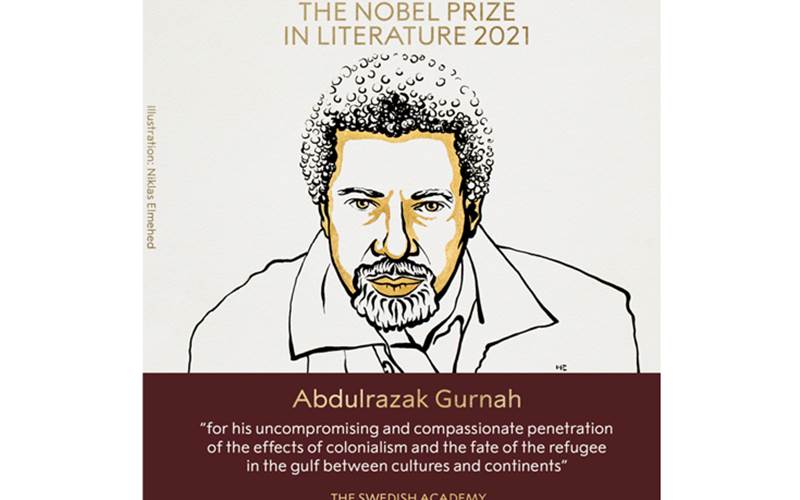Zanzibar-born Abdulrazak Gurnah wins 2021 Nobel Prize in literature
Zanzibar-born and UK-based novelist Abdulrazak Gurnah has been named the winner of Nobel Prize in literature for 2021, “for his uncompromising and compassionate penetration of the effects of colonialism and the fate of the refugee in the gulf between cultures and continents," according to the Swedish Academy.
08 Oct 2021 | By PrintWeek Team
The award comes with more than USD 1-million in prize money.
Gurnah was born in 1948. He was previously a professor of English and postcolonial literature at the University of Kent in Canterbury, England, until his retirement.
Gurnah has written 10 novels, including 1994's Paradise, which was shortlisted for the Booker Prize. It tells the story of a boy, Yusuf, who's been pawned off by his father to a merchant to settle old debts. As Yusuf is taken through different parts of Africa, Gurnah's writing pushes back against previous Western takes on the continent.
The Swedish Academy often takes criticism for focusing too heavily on male, mainly Eurocentric writers. In its 120-year history, only 16 women have won the Nobel Prize in literature. Until today, the last Black person awarded the prize was Toni Morrison in 1993. Gurnah is the fifth writer from Africa to win — joining Wole Soyinka, Naguib Mahfouz, Nadine Gordimer and JM Coetzee.
Anders Olsson, chair of the Nobel committee, said that the Gurnah’s novels – from his debut Memory of Departure, about a failed uprising, to his most recent, Afterlives – “recoil from stereotypical descriptions and open our gaze to a culturally diversified East Africa unfamiliar to many in other parts of the world”.
Olsson said that Paradise “has obvious reference to Joseph Conrad in its portrayal of the innocent young hero Yusuf’s journey to the heart of darkness”. “[Gurnah] has consistently and with great compassion penetrated the effects of colonialism in East Africa, and its effects on the lives of uprooted and migrating individuals,” Olsson told journalists in Stockholm.
Gurnah, who was in the kitchen when he was informed of his win, said that he believed it was a wind-up. “I thought it was a prank,” he said. “These things are usually floated for weeks beforehand, or sometimes months beforehand, about who are the runners, so it was not something that was in my mind at all. I was just thinking, I wonder who’ll get it?”
Afterlives, published last year, tells the story of Ilyas, who was stolen from his parents by German colonial troops as a boy and returns to his village after years fighting in a war against his own people. It was described in the Guardian as “a compelling novel, one that gathers close all those who were meant to be forgotten, and refuses their erasure”.
“In Gurnah’s literary universe, everything is shifting – memories, names, identities. This is probably because his project cannot reach completion in any definitive sense,” said Olsson. “An unending exploration driven by intellectual passion is present in all his books, and equally prominent now, in Afterlives, as when he began writing as a 21-year-old refugee.”
(Agencies)













 See All
See All